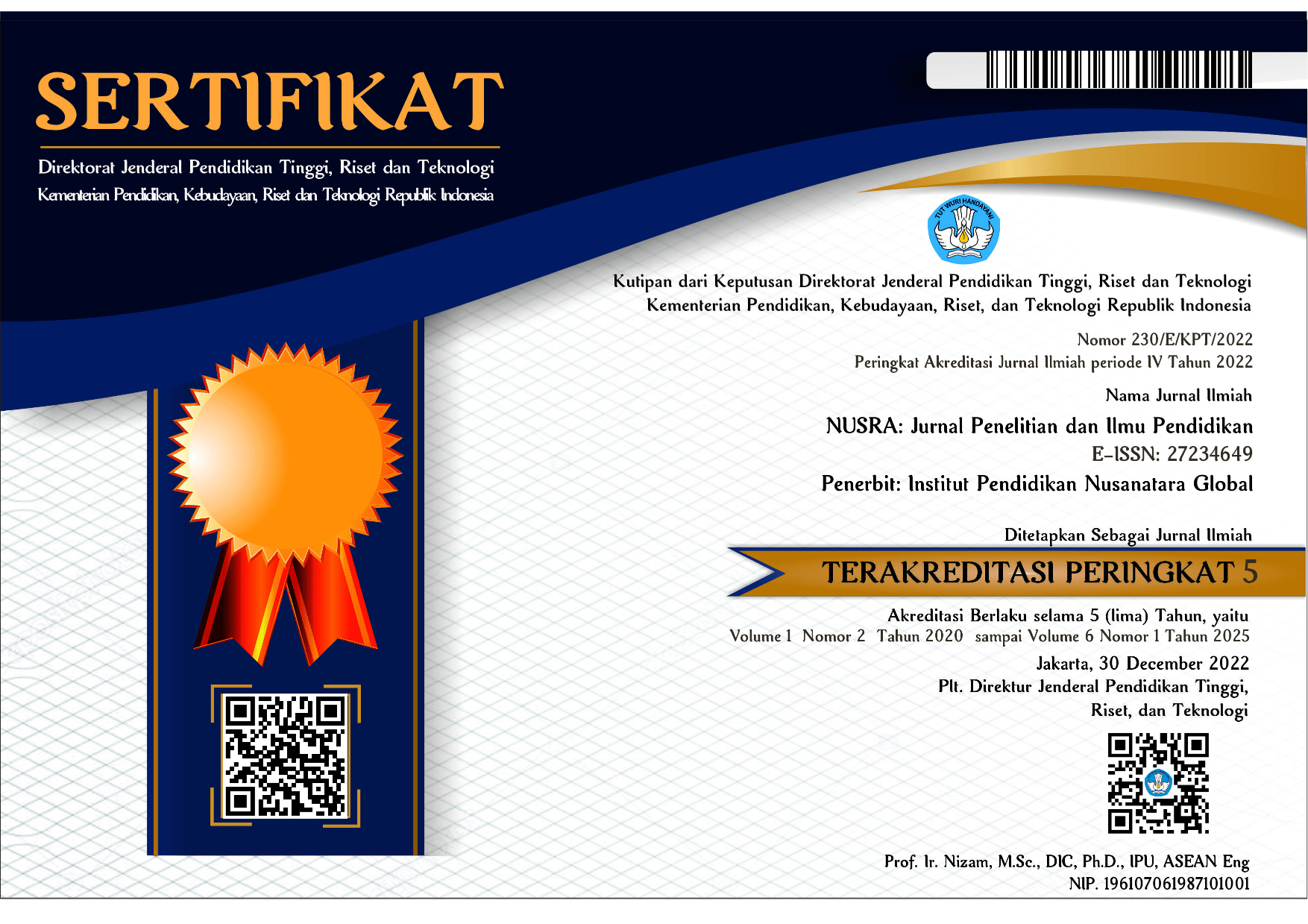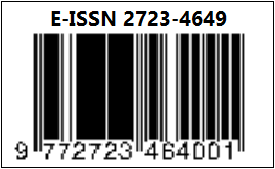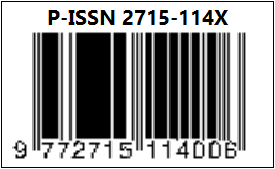CONTEXTUAL TEACHING AND LEARNING (CTL) APPROACHES ON THE CRITICAL THINKING ABILITY OF STUDENTS IN THE VII CLASS ENVIRONMENTAL POLLUTION MATERIAL At MTs USWATUN HASANAH ACADEMIC YEAR 2018/2019
DOI:
https://doi.org/10.55681/nusra.v1i1.6Keywords:
CTL, Critical ThinkingAbstract
This study aims to analyze the effect of the Contextual Teaching And Learning (CTL) approach to the Critical Thinking Ability of Class VII MTs Students. Uswatun Hasanah Cempaka Putih on Environmental Pollution Materials. This study uses an experimental research method with True experimental form and nonequivalent control group design. The population in this study were all students of Class VII MTs. Uswatun Hasanah Cempaka Putih, amounting to 65 students. This study also uses a sampling technique that is using nonprobability sampling with the type of Purposive Sampling. Data collection techniques using direct observation and measurement techniques. The research instrument used was a written test with multiple choice tests and using critical thinking indicators from Ennis. Based on the results of data analysis of students' critical thinking skills, the average post-test scores in the experimental class and the control class were 66,333 and 56,774. T-test results obtained t-count = 2.538 and t-table = 2.001 (α = 5%; db = 59). Because t-count (2,538)> t-table (2,001), it means that Ha is accepted and H0 is rejected. The effect size is 0.638 with moderate criteria. The conclusion of this study is that there is a moderate effect on Contextual Teaching and Learning (CTL) learning and learning approaches to the Critical Thinking Ability of Class VII MTs Uswatun Hasanah Cempaka Putih with medium criteria.
Downloads
Downloads
Published
How to Cite
Issue
Section
License
Copyright (c) 2020 Mulia Rasyidi

This work is licensed under a Creative Commons Attribution-NonCommercial-ShareAlike 4.0 International License.














